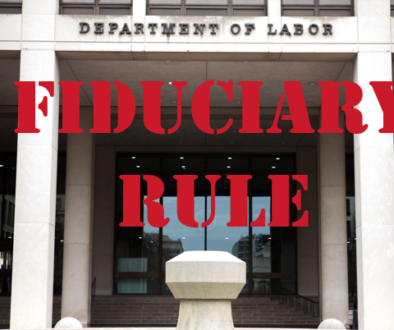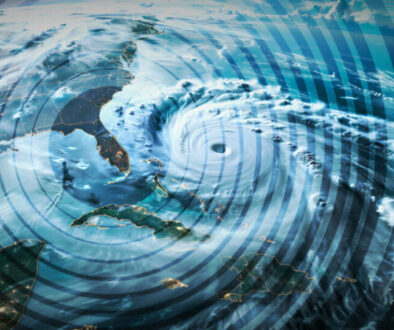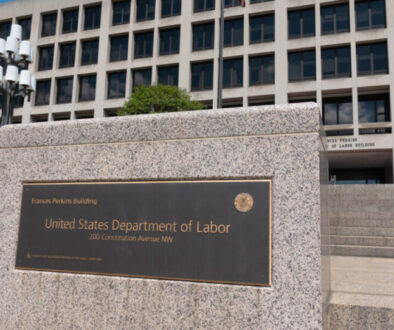Despite improving economy, Fed rate hike expected
Despite positive signs the economy is flourishing and even credible predictions that a recession is less likely, the Federal Reserve is poised to raise interest rates yet again this week, after taking a break last month from its record 10 consecutive rate hikes.
Economists and money managers seem split on the reasoning for yet another push in interest rates now – an expected quarter point boost – with some believing the Fed’s attempts to weaken inflation and avoid a recession have been successful and it’s time to declare victory.
But others say the likely Fed moves indicate its concern that the positive signs may be temporary and that inflation is still the beast that needs beating back. The Fed had set a 2% annual growth rate target for inflation, which is still hovering around twice that.
“The Fed believes that more aggressive rate hikes are still needed to bring inflation under control,” said Joseph Catanzaro, financial advisor at Oak & Stone Capital Advisors, who is predicting a three-quarter percentage point rise from the Fed’s meetings this week. Catanzaro says inflation remains stubbornly high for months despite best efforts to reign it in.
‘Upward pressure’ on wages cited
“Second, the labor market is very strong,” he said. “The unemployment rate is at a 50-year low, and businesses are struggling to find workers. This is putting upward pressure on wages, which is one of the main drivers of inflation.”
But Catanzaro joins others who acknowledge there are risks with raising interest rates in the current environment.
“Historically, a significant raise in interest rates in the U.S. has almost always led to a recession,” said Grant Edmunds, an advisor at Monetary Group, in Worcester, Mass. “With inflation back down to 4% in such a short period, the risk of pushing us into a deep recession seems unnecessary.”
Edmunds said the Fed governors are losing patience with allowing their policy efforts to play out.
“They have been so fixated on dumping cold water over inflation that they have become completely blind to any flooding that may result,” he said.
Rate hike expected despite high consumer spending
Consumer spending, considered a key driver of economic growth, has stayed strong with many Americans tapping savings stemming from the government’s stimulus checks during the pandemic and a reduction in spending on travel, restaurants and entertainment during that period.
Employers added 209,000 jobs in June and the unemployment rate – 3.6% – fell to its nearly lowest rate in 50 years and the point at which Fed started raising rates a year-and-a-half ago.
At the same time, inflation has steadily declined. In June, prices rose only 3% from a year earlier, down 9.1% in June 202, though still way above the Fed’s 2% target.
“Core’’ prices, which exclude food and energy costs, rose just 0.2 percent from May to June, the slowest monthly rise in nearly two years. Twelve months ago, core inflation was still high, at
4.%, though down sharply from 5.3% the previous month.
Markets seem to indicate a consensus that this week’s rate hike will be the last for a while. And a number of economy watchers at financial and investment institutions, including Goldman Sachs, Deutsche Bank, and others, have revised their recession forecasts to lower the probabilities.
“Our economists say there’s a 20% chance of recession in the next 12 months, down from their projection of 25%,” Goldman Sachs research report said.” That’s still slightly above the unconditional average post-war probability of 15% — a recession has occurred approximately every seven years — but far below the 54% median among forecasters in the latest Wall Street Journal survey (which is down from 61% three months ago).”
And yet The Fed’s rate hikes have made the cost of buying a home, financing auto purchases, or growing a business much more expensive, factors that tend to increase recessionary pressures. Putting the brakes on business borrowing can slow investment and hiring, yet raising rates too quickly could make it difficult for borrowers to afford their debts, leading to defaults and financial instability.
“The Fed is walking a tightrope,” said Catanzaro.
Another factor looming for the Fed is the recent banking crisis that erupted just weeks ago.
“Some have theorized that the Fed is doing their best to ‘re-load the gun’ for any future rate cuts needed to stimulate the economy,” said Edmunds. “While this may be true, raising interest rates further into a slowing economy that is fresh off a banking crisis seems ill-advised at best.”
Doug Bailey is a journalist and freelance writer who lives outside of Boston. He can be reached at doug.bailey@innfeedback.com.
© Entire contents copyright 2023 by InsuranceNewsNet.com Inc. All rights reserved. No part of this article may be reprinted without the expressed written consent from InsuranceNewsNet.com.
The post Despite improving economy, Fed rate hike expected appeared first on Insurance News | InsuranceNewsNet.



